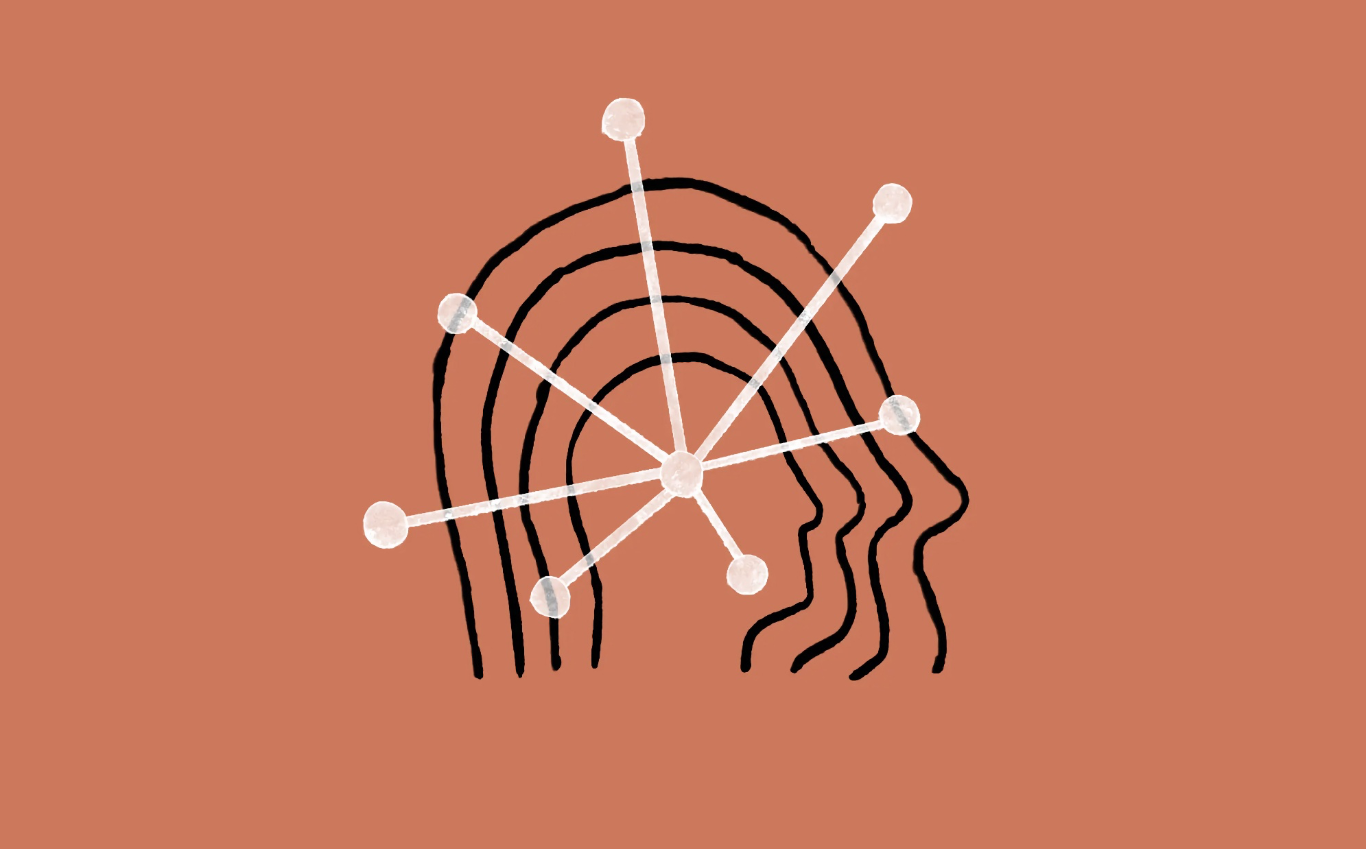Consensys Global Survey How is Web3 perceived around the world?
Consensys Global Survey on Web3 Perception WorldwideAuthor: Consensys, YouGov; Source: Consensys; Translation: Frank, Foresight News
Consensys and YouGov conducted a global Web3 awareness survey in 15 countries across all continents. This multinational study aims to provide people’s opinions on cryptocurrencies, NFTs, Web3, blockchain, and the metaverse, understand people’s feelings about the current internet, and investigate whether the recent bankruptcies of centralized cryptocurrency financial companies have affected the perception of the Web3 industry.
This survey was conducted between April 26th and May 18th, 2023. YouGov conducted online interviews with a total of 15,158 people in 15 countries and surveyed them with 32 questions for each representative population sample in each country. These countries include Argentina, Brazil, France, Germany, India, Indonesia, Japan, Mexico, Nigeria, South Africa, South Korea, the Philippines, the United Kingdom, the United States, and Vietnam.
In addition, the data collected from the global Web3 awareness survey was weighted by gender and region to ensure representativeness of the national population in each surveyed country and was comprehensively analyzed by YouGov advisors.
- Understanding the Account Abstraction That Determines the Future of Web3 in One Article
- CertiK Security Report Nearly 1 billion USD will be stolen in 2023 due to fraud, vulnerability exploitation, and hacker attacks.
- Doodles version of the holey shoes sold out in 3 days, blue-chip NFTs sell to save themselves.
Summary
Although there is a high level of global understanding of cryptocurrencies, the understanding of Web3 is much lower.
92% of the global respondents stated that they have heard of cryptocurrencies. However, there are differences among countries, with Nigeria, South Africa, and Brazil leading the way. Despite the global understanding of cryptocurrencies, only 8% of respondents consider themselves very familiar with the concept of Web3, highlighting a disconnect between the public’s perception of Web3 and its potential as a solution to privacy, identity, and digital ownership issues on the current internet.
Desire for more ownership and data privacy
Although many respondents are not familiar with Web3, many support the basic concept of Web3. 50% of people believe that they have added value to the internet, and 67% claim that they should own what they create on the internet.
In addition, only 38% of global respondents believe that their contributions are adequately rewarded. Concerns about data privacy are also prominent, as 83% of respondents prioritize data privacy, 70% believe that they should have the right to share the profits obtained by centralized internet companies from data, and 79% of respondents want better control over their online identities. These survey results emphasize the importance of helping people understand how Web3 empowers them with more control over their identities and network ownership, while also providing users with greater privacy protection and sharing the profits currently obtained by companies through user online activities.
Regional differences
When exploring the behavioral patterns of different countries, a notable divergence is the more conservative and cautious attitude of European countries towards cryptocurrencies. This skeptical attitude is widely seen in Europe as an effective safeguard against potential financial fraud, money laundering, and excessive speculation. This stance is also evident in some Asian countries such as Japan and South Korea. In these countries, cryptocurrencies are largely associated with negative concepts such as fraud, money laundering, and speculation.
However, when observing other regions around the world, such as most countries in Southeast Asia, South America, and Africa, the situation is completely different. These places show a more positive and open attitude towards cryptocurrencies and the broader Web3 field. In these countries, cryptocurrencies are seen as a more likely driver for the future development of currencies, strengthening digital asset ownership, and potentially replacing traditional financial ecosystems. Especially in some countries, such as Argentina and Nigeria, where the local currency has long been unstable, cryptocurrencies are seen as an important means of accessing global capital and resisting inflation, providing more economic security and development opportunities for citizens in these countries.
Therefore, we can see that although cryptocurrencies are being promoted and accepted by more and more people globally, there are significant differences in understanding, positioning, and attitudes towards cryptocurrencies in different countries. This divergence not only reflects the different economic conditions and financial environments of each country but also reflects the inconsistent stages of development and maturity of the global financial market. At the same time, it also provides diversified possibilities and challenges for the further development of cryptocurrencies globally in the future.
From “Users” to “Builders”: Paradigm Shift
The survey results show that there is a gap in people’s understanding of whether the Internet can better control data and identity, whether it can fairly share profits with creators, and whether Web3 can be a potential solution. Many respondents believe that they are creating value online but are not receiving fair rewards. We see that Internet users have the opportunity to adopt a “builder” mindset, using Web3 products to address issues related to network ownership, identity, privacy, and monetization for creators.
Data Privacy
Are people concerned about their data privacy? In this survey, 83% of people consider data privacy to be important. Interestingly, countries with strong data protection laws, such as Germany (58%), the UK (57%), and France (63%), do not strongly emphasize the importance of data privacy. Although data privacy is important to most respondents, only 45% of respondents trust current Internet services (social media, email, games, etc.) to use their data and personal information.
Identity on the Internet
Every aspect of life involves some form of identity verification – from housing to employment, education, and medical history. Today, your online identity requires you to prove that you are who you say you are. Our digital identities are owned and controlled by the services and social media platforms we use online, usually not stored in one place and owned by individuals themselves. The vast majority of respondents want better control over their identities on the Internet.
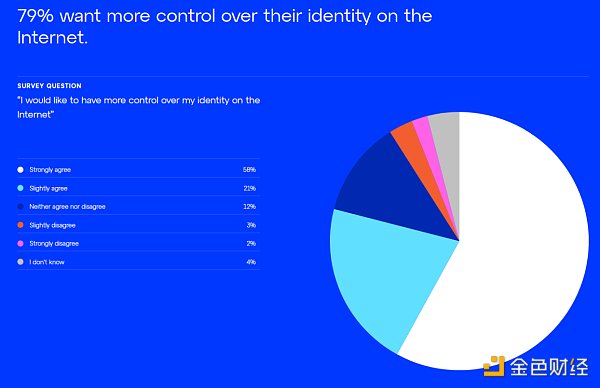
The Current State of the Internet
In today’s era, “creator economy” represents only those who have their own brand and audience, which is already a $250 billion market. Many people predict that this industry will continue to grow, especially with the emergence of new Web3 business models. Currently, only 38% of global respondents believe that they are sufficiently rewarded for the value and creativity they add to the internet. 67% of Nigerian respondents believe that they add value to the internet, while only 5% of Japanese respondents think so.
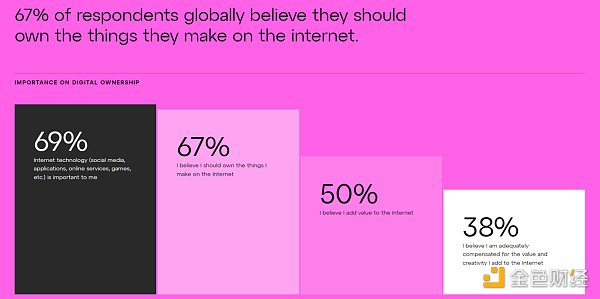
Crypto Awareness
Although cryptocurrencies are constantly appearing in the media and public domain, do people really understand what they are? Overall, people have a very high awareness of cryptocurrencies: 92% of global respondents have heard of them, and 50% of respondents say they understand what cryptocurrencies are. The proportion of respondents who claim to understand cryptocurrencies is much higher in Nigeria (78%), South Korea (63%), South Africa (61%), Brazil (59%), and India (56%), while it is much lower in Indonesia and Japan, where only one-third of people say they know what cryptocurrencies are.
Concepts related to cryptocurrencies
Which concepts are related to cryptocurrencies? Globally, cryptocurrencies are seen as the “future of money” and “alternatives to traditional financial ecosystems.” While only 8% of global respondents choose “crime and money laundering” as the primary association with cryptocurrencies, European countries are more likely to associate them with speculation (especially in France and Germany) or negative information such as fraud/phishing.
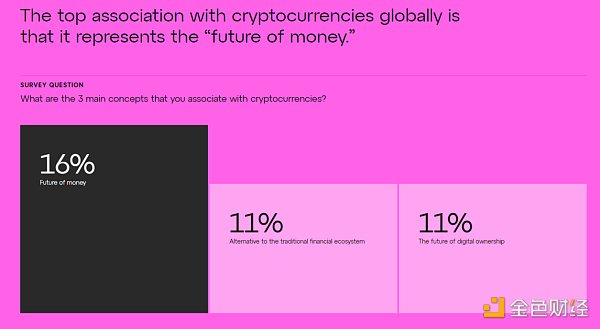
NFT Awareness
As for familiarity with NFTs, more global respondents say they are not familiar with NFTs. The United States, India, South Africa, and especially Nigeria are the countries most familiar with NFTs. On the contrary, respondents from South America, Europe, and Japan have the highest proportion of unfamiliarity with NFTs.
Web3 Awareness
Overall, globally (all countries combined), most respondents are more familiar with all the Web3 concepts tested in the survey. However, there are also some differences: the most popular concepts are metaverse (36%) and NFTs (34%), while Web3 is the least known concept, with only 24% of respondents familiar with it.
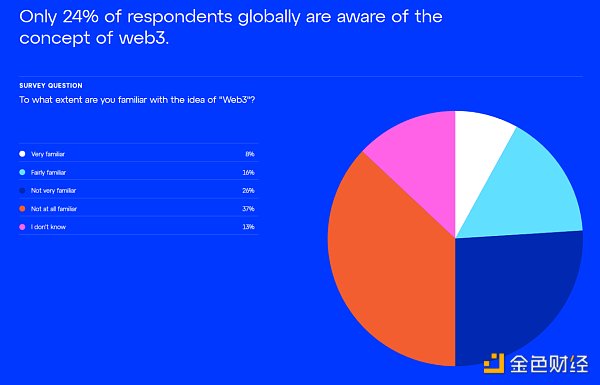
Impact of Recent News
2022 has been a year when many cryptocurrency companies have filed for bankruptcy. But has the public noticed? Has it affected their trust in the industry? Two-thirds of global respondents have heard about recent bankruptcies of centralized cryptocurrency companies, with significant differences between countries. This series of bankruptcies of cryptocurrency financial companies has had an impact on respondents’ overall trust in blockchain, cryptocurrencies, and Web3. The impact is greatest in South Korea and Nigeria (94% and 89% respectively claim a significant impact). Respondents from Germany, Vietnam, India, and South Africa are more likely to claim that it has had no impact on their trust in the ecosystem.
Conclusion
The survey results show that there has been a hopeful shift in people’s general attitudes towards the vision of the Internet. The Internet vision empowers individuals with greater control over their shared online data and ensures a more equitable distribution of profits among creators. However, despite this positive trend, there is still a significant gap between the understanding and utilization of cryptocurrencies and Web3 technology. This gap presents a valuable opportunity for mainstream Web3 applications to bridge the existing intermediation gap in today’s internet environment, characterized by limited privacy, control, and ownership.
We see the transition to Web3 as an opportunity for internet users to regain control: finding ways to guide them in ways that add value for them, incentivizing them to build, own, and shape their world. We can harness the power of Web3 to address issues related to internet ownership, identity, privacy, and creator monetization.
We will continue to update Blocking; if you have any questions or suggestions, please contact us!
Was this article helpful?
93 out of 132 found this helpful
Related articles
- With the innovative low transaction volume, where is the way out for NFTs?
- After Vitalik’s account was hacked, he released phishing information. Besides phishing attacks, what other ways of fund fraud should users be alert to?
- Opinion If the Bot track cannot achieve an unforkable state, it will be very difficult to achieve sustainable revenue.
- Will Micro-Rollup be the next wave when applications become Rollup?
- Inventory of Common Scams in the Cryptocurrency Field
- LianGuai Morning News | G20 leaders will discuss advancing the proposed roadmap for cryptocurrency regulation in October.
- Artificial Intelligence and Work Automation






